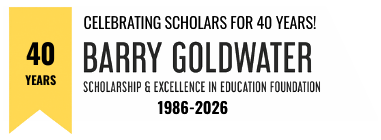From detention cell in Yugoslavia to studying melanoma cells at Yale
“They didn’t wear uniforms or have badges. They were armed, though, with weapons, as well as strong suspicions that this Yugoslavian boy was an enemy. His parents had spent time in the United States and he was born there. In Yugoslavia during the brutal regime of Slobodan Milosevic, being born on American soil was enough to label you a threat. So, they came for him, took him from his parents, detained him, and interrogated him for weeks.” This is how the article in the Iowa State University’s College of Liberal Arts and Sciences Alumni Newsletter began as it described 2009 Goldwater Scholar Goran Micevic’s early years.
While always interested in how things worked, Goran’s first chance to engage in research came at Iowa State University in the laboratory of Dr. Kristen Johansen. Dr. Johansen’s laboratory uses fruit flies to study the role of protein modifications in regulating gene expression. “I never dreamed she’d think this sophomore who barely spoke English would amount to anything,” Micevic said. “She believed in me and let me tinker in her lab.” The tinkering turned into an independent research project that involved the use of highly specialized techniques to identify sites of chromosomal binding in the fruit fly genome. This project was the basis on which Goran was nominated by Iowa State for the Goldwater scholarship. Ultimately, Micevic’s project helped lead him to an MD/PhD program at Yale University’s School of Medicine where today he is studying melanoma formation and progression using genetically engineered mouse models of melanoma. Goran’s Yale studies have resulted in a 2016 Paul and Daisy Soros Fellowship for new Americans. The word “incredible” hardly describes Goran Micevic’s life journey.
When asked what the Goldwater did for him, Goran responded, “The Goldwater Scholarship was a milestone in my undergraduate studies. It validated my commitment to academic excellence, and fortified my plan to pursue scientific research at the doctoral level. Importantly, it was also my first application for a nationally competitive merit-based award, requiring significant preparation, refined writing and critical thinking regarding my research project. The process prepared me well for subsequent competitive fellowship and grant applications in my doctoral career. In pragmatic terms, it served as a scholastic carte blanche that opened many opportunities that would be otherwise unavailable, and significantly eased my financial circumstances as an undergraduate student.”
Adapted and quoted from Iowa State University ‘s College of Liberal Arts and Sciences Alumni Newsletter
Photo Credit – Harold Shapiro

